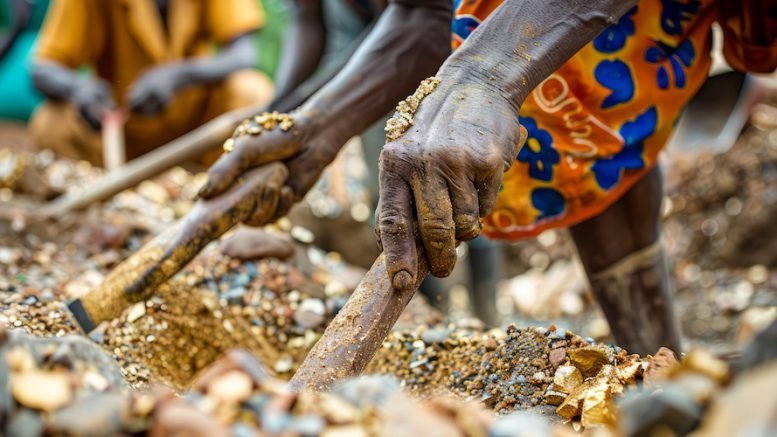Understanding the Scale of Gold Smuggling in Africa
The issue of gold smuggling in Africa has reached an alarming scale, as highlighted by the Swiss NGO Swissaid. According to their comprehensive report, an estimated 321 to 474 tonnes of gold go undeclared each year. This vast quantity of undeclared gold, primarily sourced through artisanal and small-scale mining, holds a staggering value between $24 to $35 billion. Such figures reveal the enormity of the problem and the significant economic impact it has on the African continent.
Smugglers employ various methods to transport gold out of Africa, exploiting both legal and illegal channels. Some of the most common methods include concealing gold in personal luggage, disguising it as other cargo in freight shipments, and using corrupt officials to bypass customs checks. The smuggling routes are equally diverse, often involving multiple transit points to obscure the gold’s origin. These routes extend across different continents, with a significant portion of the smuggled gold eventually reaching Dubai. Dubai’s status as a major global gold trading hub makes it a preferred destination for smugglers.
Dubai’s appeal to gold smugglers is multifaceted. The city offers a combination of minimal regulatory scrutiny, a high demand for gold, and a well-established infrastructure for gold trading. These factors collectively create an environment where smuggled gold can be easily integrated into the legal market. Once the gold arrives in Dubai, it is often melted down and re-cast into new bars, effectively erasing any evidence of its illicit origins. The gold is then legally exported to other countries, making detection and regulation exceedingly difficult.
The magnitude of this issue underscores the need for enhanced international cooperation and stringent regulatory measures to combat gold smuggling. Addressing this problem is crucial not only for curbing illicit financial flows but also for ensuring that the economic benefits of gold production are equitably distributed within the producing countries. Such measures would help mitigate the adverse economic and social impacts of gold smuggling in Africa.
Implications of Gold Smuggling on Local Economies and Development
The issue of gold smuggling poses significant challenges to local economies and development across Africa, particularly in Nigeria, where Lagos serves as a central hub for this illicit trade. The smuggling of gold results in the loss of billions of dollars in potential revenue, which could otherwise be channeled into government coffers. This deficit in revenue severely hampers the ability of governments to fund essential public services such as healthcare, education, and infrastructure development. Consequently, communities are deprived of critical services that are fundamental to their growth and well-being.
Gold smuggling also undermines the formal economy by diverting resources into the black market, where they are untaxed and unregulated. This creates a parallel economy that erodes the financial stability of the nation and diminishes investor confidence. The repercussions extend to the social fabric as well; without adequate funding, public services deteriorate, leading to increased poverty and social unrest. The illicit trade also perpetuates a cycle of corruption, as officials may be bribed to overlook illegal activities, further weakening the rule of law and governance structures.
Moreover, the environmental and social consequences of artisanal and small-scale mining, which often operate without proper regulation, are dire. The absence of regulatory oversight means that mining practices frequently result in significant environmental degradation, including deforestation, water pollution, and soil erosion. These environmental impacts have a cascading effect on local communities, leading to health problems and loss of livelihoods, particularly for those who depend on agriculture and fishing.
To address the multifaceted issues associated with gold smuggling, African governments and international bodies must implement stringent measures. These include enhancing border controls, increasing transparency in the mining sector, and fostering international cooperation to track and intercept illicit gold flows. Additionally, it is imperative to support community-based initiatives that promote sustainable mining practices and ensure that the profits from gold production are reinvested in local development projects. By taking these steps, African nations can curb the illegal trade and harness their natural resources to drive sustainable economic growth and social development.



































